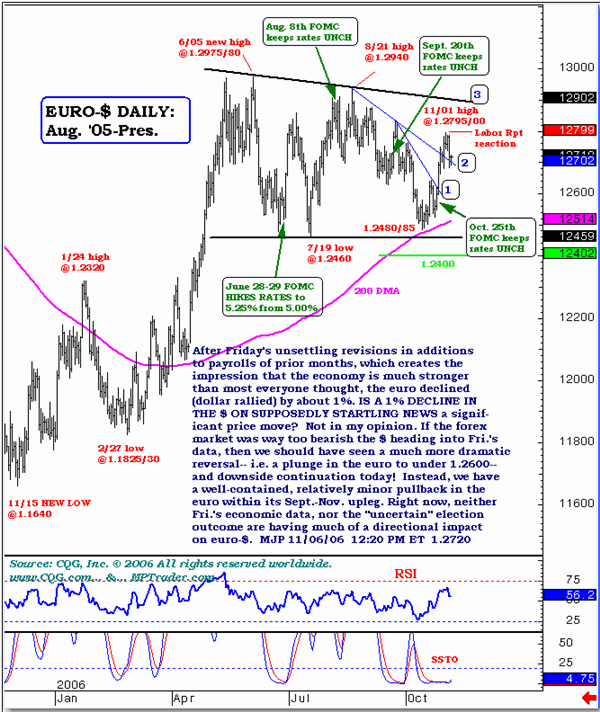Earlier on CNBC, one of the guests mentioned that a split Congress, or even a Democratic Congress, juxtaposed against a Republican (lame duck) president historically was bullish for the stock market, because the conditions reined in out-of-control spending. And the current Republican majority certainly has exibited unteathered spending for the past five years or so. And maybe the stock market recognizes that at the very least, the House will shift to the Democrats, and for that reason alone, maybe the administration will not be accorded the funds it needs to finance the war, and other Bush endeavors. Can or should we interpret that as "good news?" Who knows?
One thing I think I know is that the forex market usually is the place to look for clues about such perceptions, and right now, it is not acting as though much, if anything, is about to change as a result of tomorrow's mid-term election. With that in mind, let's have a look at the euro.
After Friday's unsettling revisions in additions to payrolls of prior months, which creates the impressive that the economy is much stronger than everyone thought, the euro declined (dollar rallied) by about 1%. Is a 1% decline on supposedly startling news a significant price move? Not in my opinion.
If the forex market was way too bearish heading into Friday's data, then we should have seen a much more dramatic reversal -- i.e., a plunge in the euro to under 1.2600, and downside continuation today. Instead, we have a well-contained, relatively minor pullback in the euro within its September-November upleg.
Right now, neither Friday's economic data nor the "uncertain" election outcome are having much of a directional impact on the euro-$.

Mike Paulenoff is a 26-year veteran of the financial markets and author of MPTrader.com, a real-time diary of his technical chart analysis and trading alerts on all major markets. For more of Mike Paulenoff, sign up for a free 15-Day trial to his MPTrader Diary by clicking here.